
With the Games of the XXXII Olympiad Opening Ceremony in Japan looming, Thrive thought this might be an appropriate time to introduce you to “an old, departed friend” who had a profound influence on the Olympiad movement.
In Papua New Guinea there is an amazing place called “WALINDI PLANTATION RESORT”. It is nestled on the pristine shores of Kimbe Bay West New Britain. Proprietors Max and Cecilie Benjamin, their family and staff have been proudly showing off the area’s magnificent coral reefs and pristine waters to visiting divers for over 30 years. It was these alluring attractions that persuaded one of the world’s most famous filmmakers to choose to learn to dive there.
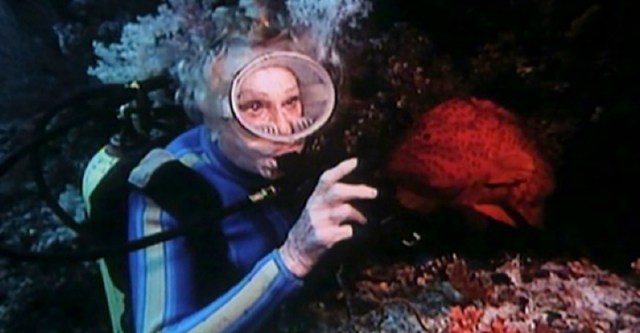
It was at the Walindi Plantation Resort in 1981 that I met Leni Riferstahl. She was 81 at the time. Why is this of any interest to you, our readers?
With Japans opening ceremony imminent, and Leni’s own unique place in both Olympic & motion film making history we felt it was exactly the right time to retell her story.
Leni was born in Berlin in 1902. She studied painting and dance and started her artistic career as a dancer. She became so famous after her first performance that Max Reinhardt engaged her for the “Deutsches Theater” one of Germany’s most prestigious venues. An injury to her knee put an end to this chapter in her already sensational career.
Next, she turned her hand to acting and promptly became extremely famous at that. Further accolades followed for her prowess behind the camera as a director, and as a producer and a film reporter.
Her world-renowned films included “Der heilige Berg” (1926), and “SOS Eisberg” (1933). There were eight other roles in between.
Her greatest success was to come in the form of the documentary film “Triumph des Willens” (The Triumph Of Will) named after the Reich Party Congress in1934 in Nuremberg. It was later seen as a naive attempt by a young woman to glorify what was to become an unspeakably hideous chapter in world history. The film however received the highest of awards: a gold medal at the Venice Film Festival in 1935, and the gold medal at the World Film Exhibition in Paris in 1937.
 (“The Triumph Of Will”) Translation
(“The Triumph Of Will”) Translation
At the end of the Second World War however, it destroyed Riefenstahl’s career. From then on it was no longer recognised as a piece of art but condemned as a piece of National Socialist propaganda.
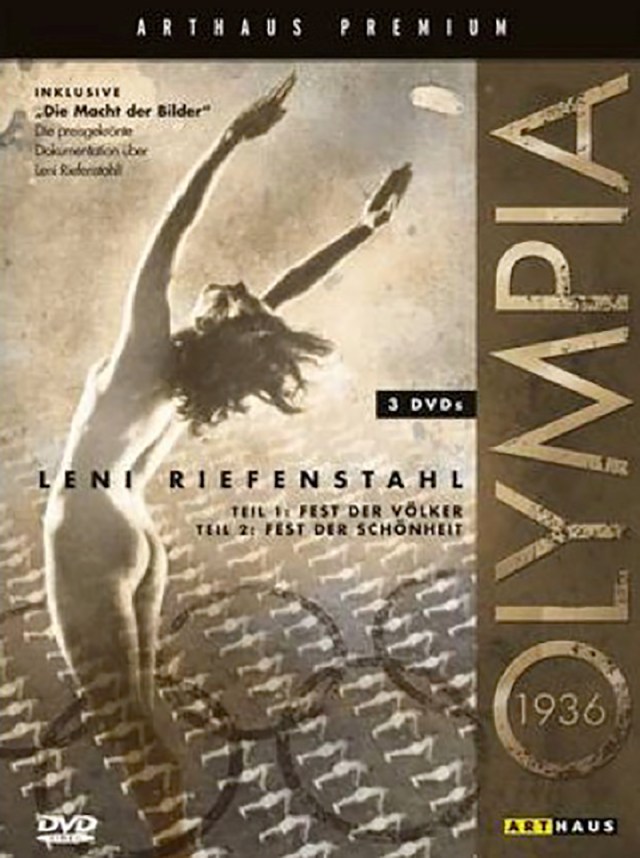
Her world-famous film about the Olympic Games which she made in 1936 was destined to have the same fate. It was made in two parts, part I “Fest der Völker” and part 2 “Fest der Schönheit”. Prior to it being ostracised it also received the highest of awards: a gold medal at The Paris Film Festival in 1937, and the first prize in Venice as the world’s best film in 1938. It was lorded by the IOC in 1939 with an Olympic award, and in 1956 it was classified as one of the world’s best ever ten films
Please note we are not endorsing the propaganda these films promoted nor are we dismissing the horror of the Nazi movement and the hideous atrocities and crimes they committed against humanity. We are merely considering her work in the development of the art of cinematography that has become the standard for today’s modern broadcasting techniques.
In his authoritative production book “Television Sports Production” considered by most as the “Bible” of television sports production broadcasting, its author Jim Owens writes:
1936: Leni Riferstahl filmed the 1936 Olympics for the documentary OLYMPIA. Her innovative use of dramatic film techniques on sports event changed the world of film and television sports forever. The use of tracking dollies, underwater cameras, cameras in hot air balloons, dive cameras, low/high angles had never been attempted before on sports coverage. Broadcasting the Olympics, an International Olympic committee publication, states that “The shooting techniques to use by Line Riefenstahl have become standards for Olympic film-making and television coverage ever since”.
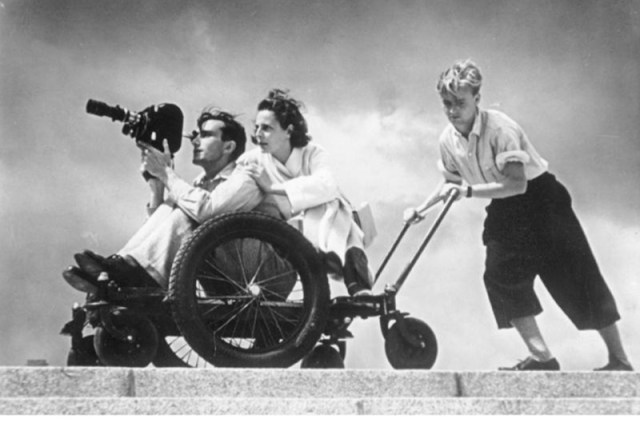 High praise indeed.
High praise indeed.
When I first met Leni, she told me she was in Papua Niugini to fulfil a dream that she had cherished for a long, long, time. “To learn to dive so she would be able to also work as an underwater photographer in the future”. Remember she’s 81.
She soon became a master in this profession producing two illustrated books, The Coral Gardens and The Wonders Under Water.
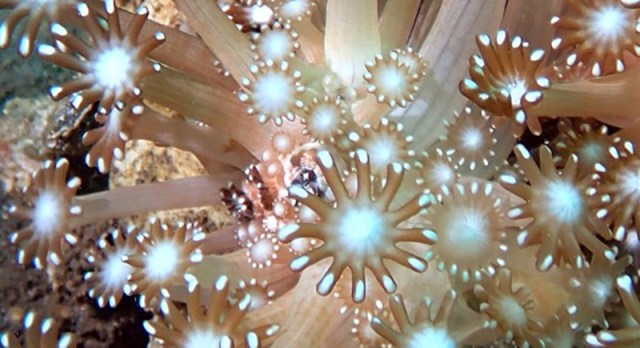
They both caused worldwide sensations with their beauty and imagery and received notable honours and awards. Leni also received many awards for her underwater filming including an Emmy Award in the USA and the special prize from the film critics in Japan.
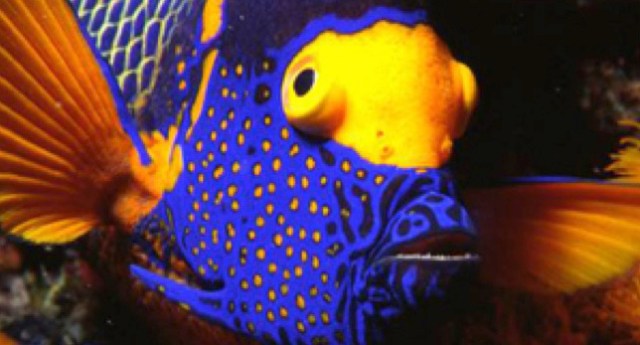
When I met her, she was a gentle, modest soul, who was just simply in love with natural beauty and the magic nature of the strange and sometimes awkward creatures she had discovered under the water.
She spent many years in Africa, where her photographic skills found a special place in the hearts of the Nubian Nation. She soon gained the attention of world’s elite. Photo essays depicting her stay with the Nubian people were first published in the magazines Stern, The Sunday Times Magazine, Paris Match, L’Europeo, Newsweek and The Sun. Her illustrated books The Nuba and The Nuba of Kau earned her further honours and awards.

Exhibitions of her photography are still shown all over the world today.
But I remember her, even at the age of 81, as being like a giddy young schoolgirl, just fascinated by the beauty of everything around her.
Leni Riefenstahl died on Monday 8 September 2003, in Poecking, Germany a few weeks after her 101st birthday.
But her legacy lives on.








